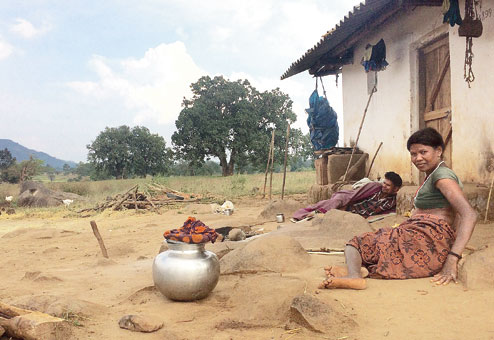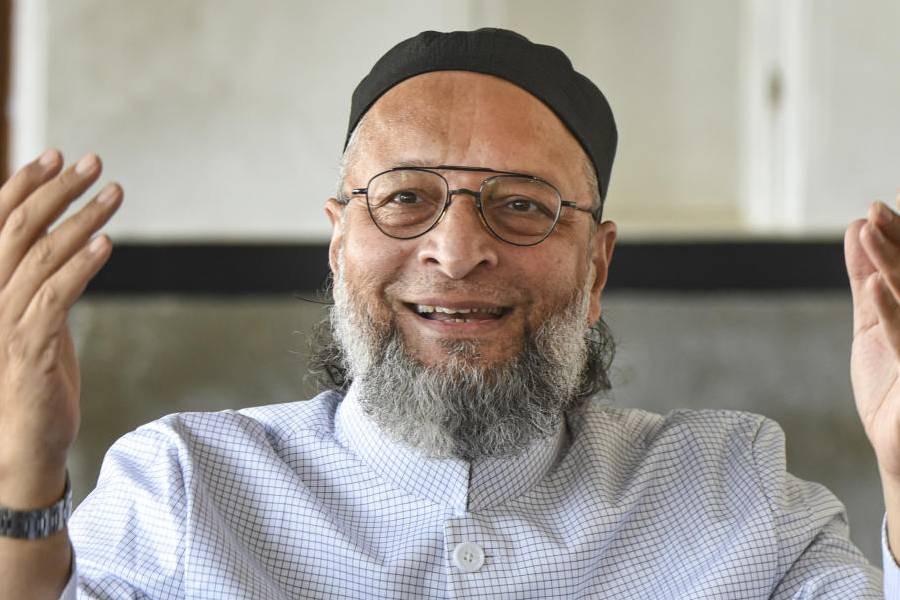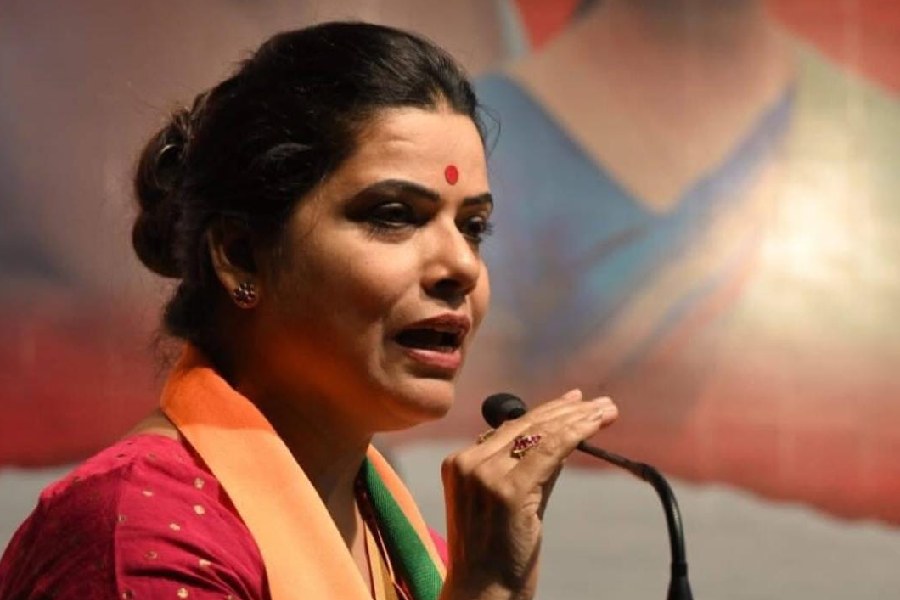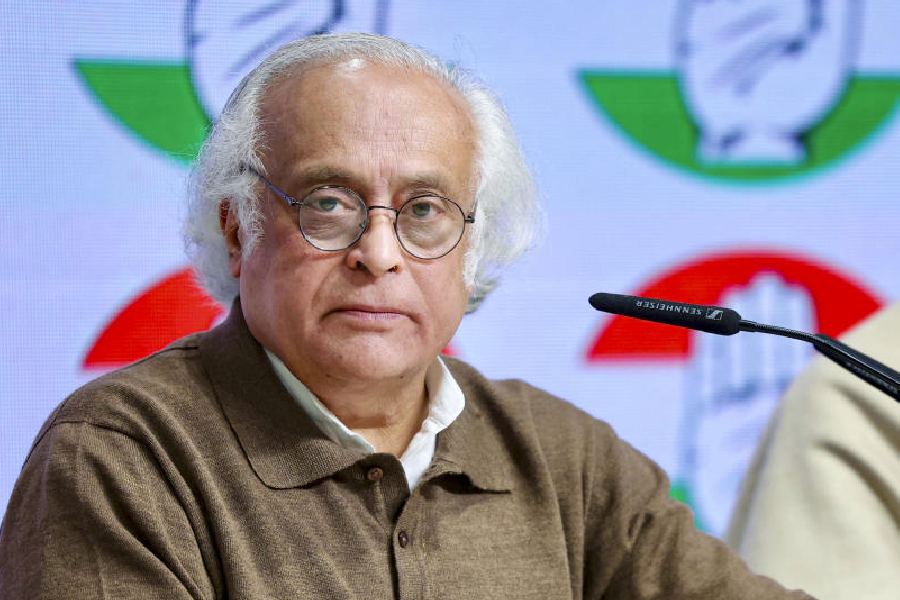
The two teenagers were inseparable. They danced together at village weddings, laughed together - and died together. They were near a stream, chatting the way they always did, when they were gunned down by a group of policemen.
"I saw the cops shooting them," says 19-year-old Vanjam Hungla, another resident of Palamadgu village in Chhattisgarh's Sukma district.
Sariyam Pojje and Vanjam Shanti fell to the ground. Hungla saw that. Pojje was still alive. "Then the cops shot her again," Hungla says. "The bullet hit her stomach and her intestines popped out." He could see a packet of tamarind chutney tied to her waist.
Hungla, detained by the police for 19 days after the killing, says he was asked to carry the bodies to the Polampally police station, 10 kilometres from where they were killed on January 30.
The police later said that the girls were Maoists: their names were added to the growing list of "Maoists killed in encounters" in Chhattisgarh.
The two teenagers, villagers say, were killed by constables of the " arakshak police" or the District Reserve Guard (DRG). Most DRG members are surrendered Maoists. Some left the underground guerrilla group after being disillusioned by their ideology; some for a better life. Joining the DRG or the Gopniya Sainik (Secret Police) assures them of an income and perks.
"Some of them ate a roti and sat under a fan for the first time in their lives after joining the force," says IG (Bastar range) S.R.P. Kalluri.

In the last two years, 123 former Maoists have joined the DRG. Villagers tell you that the DRG has the freedom to do what it wants. Homes are looted, villages burnt down, women raped and killed, men tortured and left to die. "They are not fighting Maoists, but the Adivasis (tribals)," says Somali Hemla, a 55-year-old Bijapur villager.
Hemla knows that well. Her 27-year-old son, Situ, was killed - allegedly by the DRG - in July.
"Situ was working in the fields when some 100 policemen dragged him to a nearby forest. He was nailed to a tree and shot," Hemla recalls. "Later, we heard that the cops thought he was a Maoist commander who had the same name," she says as she looks at a photograph of Situ, tears rolling down her gaunt cheeks.
Her youngest son, Paklu, 25, says he saw the men. "I recognised them. They were from our village." He was picked up by the police and detained for over a month at the Gangaloor police station after Situ's death.
His elder brother, Sukharam, 31, was charged with being a Maoist and has been in jail for 11 years. He was picked up by members of the proscribed civil militia group, Salwa Judum.
Salwa Judum is dead, but long live DRG. The former was disbanded in 2012, following orders from the Supreme Court. But the DRG has emerged from its ashes - and is seemingly serving the same purpose.
The 1,500-member DRG is the Chhattisgarh government's way of dealing with Maoist-dominated Bastar. The force was set up in 2015, and emerged as a powerful body after its members were allowed to carry out search operations. The Central Reserve Police Force, too, has started recruiting tribals for a new force called the Bastariya Battalion.
Over the years, the Bastar police have hired villagers in different forms. Tribal members were encouraged to join as special police officers (SPOs), and then enroll in the Auxiliary Armed Forces. The joining rules - including educational and physical requirements - were tweaked to enable the government to recruit tribals. The SPO has since been disbanded.
The DRG, villagers believe, kills anyone thought to be linked to the Maoists. Villagers say that Pojje and Shanti used to attend meetings convened by Maoists, like many other villagers.
For many of the new DRG members, the job comes with the promise of protection. "I had no option but to join the force as police officials said I would get killed [by the Maoists or by the police itself] if I didn't join them," says a DRG constable. "It's better to be here. At least, there is protection."
There is also money. The government gives Maoists Rs 10,000 when they surrender. On being recruited as constables, they are paid Rs 20,000 a month. Some are sent for specialised arms training to the Counter Terrorism & Jungle Warfare College Kanker in Chhattisgarh, and a few to Mizoram's Counter-Insurgency and Jungle Warfare School.
The police claim the new strategy is yielding results. Over 110 Maoists have been killed in anti-Maoists operations carried out by the DRG and the special task force (STF) so far this year - recording the highest number of deaths in the last 16 years.
.jpg)
"They know the terrain and topography well. They also know the Maoist hideouts," Kalluri says.
This was the role that was given to the Salwa Judum, too. Set up in 2005, it is believed to have displaced over 1,50,000 people and killed 250 over seven years. Its demise led to the formation of new groups. The villagers allege that the names change, but the aim and execution remain the same.
In Jagdalpur, the district headquarters - where Kalluri's close lieutenant, R.N. Dash, is the district superintendent of police - groups such as the Action Group for National Integration (AGNI), Police Friends, Police Natya Mandali and Jai Bastar Vikas Sangharsh Samiti have come up in recent times.
For the forces, the men's knowledge of the terrain is all important. They can trek to the hilly and forested interiors with ease - something that the city police have difficulty doing.
Development has bypassed many of the villages, as has governance. The heads of most village panchayats live in the cities as they fear Maoist attacks. Villages such as Palamadgu and Koraiguda in Sukma are governed by a "Janatana Sarkar" - people's government. Villagers say that the "Sarkar" repairs wells and distributes medicines. The two villages have freshly painted memorials for Maoists killed by the police.
Some villagers accuse the police of forcing them to join them. "They come for search operations and make us stand in a line. Then they ask, 'Are you with us or with them'," says Basuram Kuriam, a Dantewada villager. "I wish we could tell them that we are not with either."
Sometimes, the villagers succeed in resisting the police. When constables from the Dhaudai police station asked young men of Narayanpur's Sulenga to join them, the entire village opposed the move. "We asked them to first give us good roads, then to come to us for our boys. Now they don't harass us anymore," a villager says.

Mostly, however, villagers have little choice but to give in. And they allege that young men of their villages continue to be killed for no reason. That is what happened to Kanki Mandavi of Surnar village in Dantewada, they say. The 20-year-old deaf and mute man was picked up by the police from a market on January 26. A day later, he was killed with two Maoists, Bal Singh and Kosa, in an alleged encounter at the Turrempara-Lakhapal forest area.
"But Kanki had no links with the Maoists," says his malaria-hit brother, Ramesh.
The world outside Bastar is taking note of these deaths. The Supreme Court in April slammed the state government for fake encounters. Top police officials also admit that there have been human rights violations. "In February, I wrote to the SPs to say that no police force is above the law," says D.M. Awasthi, special director-general (Naxal Operation and Special Intelligence Bureau).
Some among the new recruits are troubled by the operations. "Perhaps I will join the Maoists again, if I get a chance," says a surrendered Maoist, now in the DRG.
In Bastar, nothing changes.
PREDECESSOR WAR
The rise and fall of Salwa Judum
- A civil militia started by the state government in 2005
- Accused of raiding and burning down villages, torture, rape and murder
- More than 250 people estimated to have been killed and 1,50,000 villagers displaced by the group over seven years
- Was active in Dantewada, Bijapur and Sukma districts
- Top leaders — Mahendra Karma, Ajay Singh, Soyam Mukka, Chaitram Attami and Sukhdev Tati
- In 2011, Supreme Court called it illegal and unconstitutional; asked the state to disband it
- Disbanded in 2012
SUCCESSOR WARRIORS
District Reserve Guard (DRG)
- Operates under the superintendent of police of a district
- Since 2015, surrendered Maoists have been encouraged to join the force because they know the terrain and Maoist hideouts
- Some of them are trained in the Counter Terrorism & Jungle Warfare College Kanker, and a select few are sent to Mizoram’s Counter-Insurgency and Jungle Warfare School
- Many members state that they joined the force for police protection
Other Vigilante groups aiding security forces
1. Action Group for National Integration (AGNI)
2. Police Friends
3. Tangia
4. Jai Bastar Vikas Sangharsh Samiti
5. Samajik Ekta Manch (recently disbanded)
THEIR TOLL
- Number of Maoists killed: 188
- Number of surrendered Maoists: 1902
- Number of surrendered Maoists who joined the DRG (2015-16): 53
- Number of surrendered Maoists who joined the Secret Police or Gopniya Sainik: 70
- Number of Maoists camps raided by the police: 21
Police figures; from June 2014 to November 2016
List of alleged fake encounters in 2016
- January 2016: 13 civilians killed in Pedda Jojod and Akwa in Bijapur, Palamadgu in Sukma, and Surnar in Dantewada
- February 2016: Three civilians killed in Singaram, Itanapara and Chintagupa in Sukma
- May 2016: Four civilians killed in Marjum in Dantewada and Kanaiguda in Sukma
- June 2016: Madkam Hidme of Gompad in Sukma was picked up from her village, raped and killed by police. Chhattisgarh High Court later directed that the body be exhumed and a postmortem be conducted and videographed
- July 2016: Teen undertrial killed in Chandometa in Bastar
- September 2016: Two children killed in the Sanguel forests of Burgum
Figures and names given out by Maoist groups and villagers










